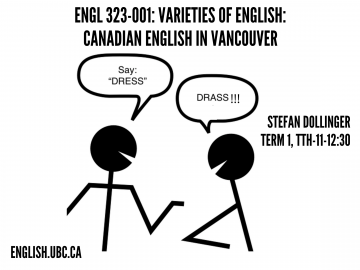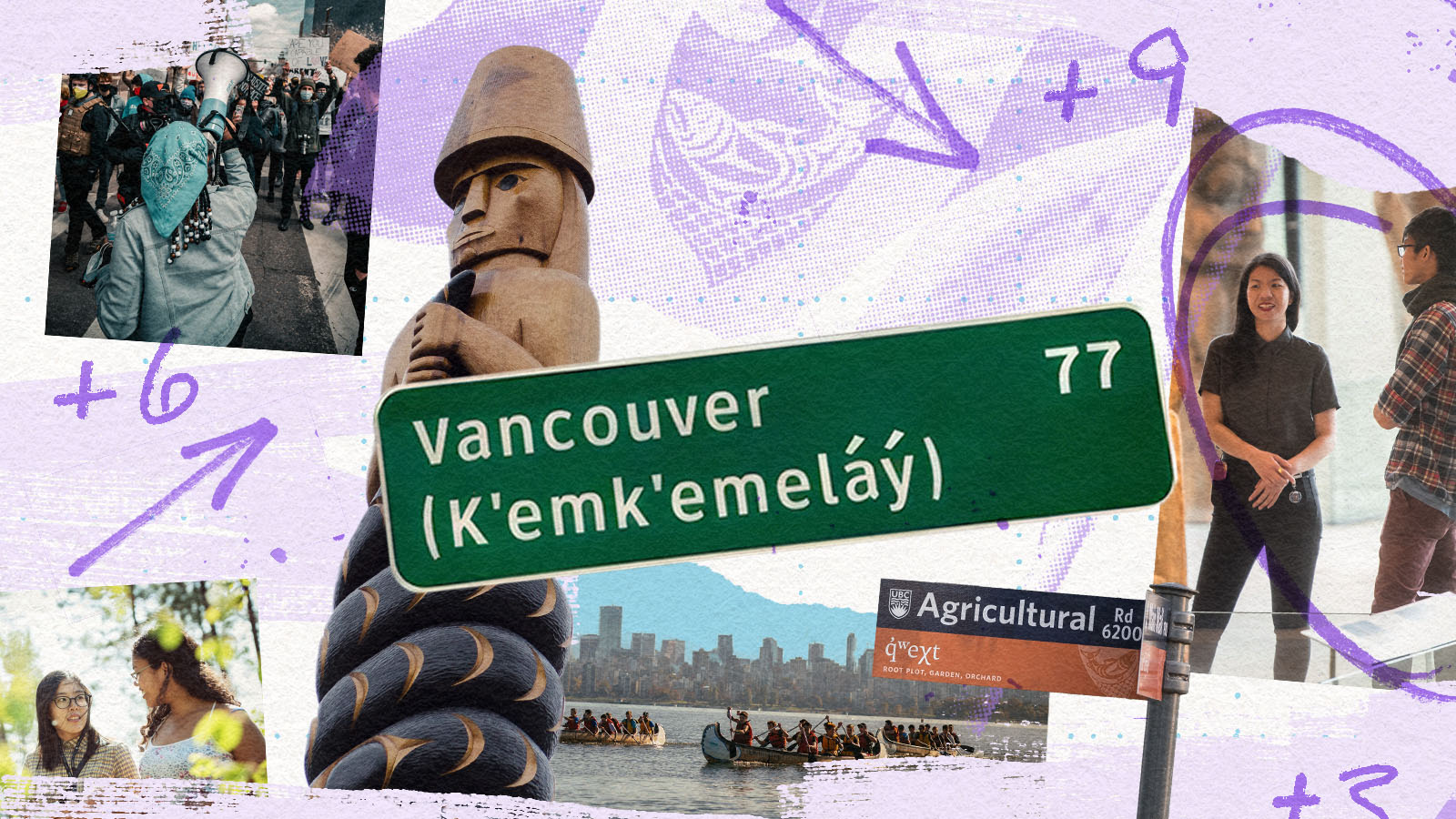

ENGL 323-001
Varieties of English
Stefan Dollinger
Term 1
TTh, 11:00 AM-12:30 PM
“Canadian English in Vancouver”
Join the “course behind the book”, “the book that has been built on research grants”! In this course, we will explore the method of the written questionnaire in the social variation of English, a method that has been sidelined for most of the 20th century until quite recently (sociolinguists generally prefer interviews, but not so quick!) Your textbook, The Written Questionnaire in Social Dialectology: History, Theory, Practice, by Yours Truly, which has played a role in the method’s revitalization, will guide us through the process from start to finish. In this process, you’ll learn an awful lot about English in Canada: is eh Canadian? Is there Canadian English? Is toque really Canadian (what is it, anyway?). We will try our hand at real data collection and data in a well-defined manner to see which kind of question “works” better and why for your linguistic variable. Couch vs. chesterfield, parkade vs. garage, tom-EH-to, tom-AH-to? Let’s call the whole thing off and see what it’s really about. Every year, some of your research findings make it into the book, as the next generation of insights. Research ethics with human participants is part of the course: How may we treat our respondents? How not?
As a side effect, you’ll learn marketable skills such as Excel (4 commands), Qualtrics (the survey suite) and R (5 commands).
Textbook: see here for chapter 1 (URL: https://www.academia.edu/18162995/)
Deliverables:
- Term paper (in pairs): 35%
- Midterm exam: 20%
- Final exam: 20%
- Personal summary: 10%
- Attendance and Participation: 15%
This class observes the Golden Rule and comes with an Instructor Promise
Golden Rule: Every contribution is a good contribution.
Instructor promise: I will take you with 0 knowledge of empirical work, Excel, etc. and guide you through the process.
As the Faculty of Arts has determined that all BA courses will be offered online in Fall 2020,this course will go ahead using a combination of asynchronous (recorded/text/online) materials and synchronous (real-time) classes in our designated timeslot. All readings you have already available in the textbook.


